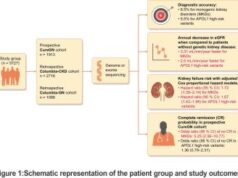In celebration of the 2021 World Malaria Day, Lagos Commissioner of Health, Prof. Akin Abayomi on Sunday disclosed that over 700,000 patients in the state are diagnosed with the disease annually.
Abayomi made this in a statement themed “Zero Malaria – Draw the line against malaria’’ with the slogan “Stand up–Take Action.”
World Malaria Day is commemorated on April 25 every year to create a massive awareness of the global burden of malaria and to mobilise support for the Roll Back Malaria strategies.
The commissioner noted that although malaria prevalence is low in the state, the burden is still high.
“In Lagos State, malaria accounts for more than 70 per cent of outpatient in the public health facilities.
“More than 700,000 malaria cases are reported annually. 657,154 patients with malaria were seen in both private and public health facilities in 2020.
“Malaria is prevalent in the vulnerable groups – children under five years and pregnant women where the infection can be profoundly more severe.
“The topography and ecological features of Lagos State; the vast coastal terrain, rapid urbanisation, and poor drainages are major predisposing factors that contribute to the transmission of malaria all year round.”
According to the Lagos Commissioner, there has been a considerable marked reduction in the cases of malaria globally (between 2010 and 2019 with a decline from 71 to 57 cases per 1,000 population at risk).
“Nigeria has recorded a decline in malaria cases (from 42 per cent in 2010 to 27 per cent in 2015 and 23 per cent in 2018).
“The National Malaria Indicator Survey conducted in 2015, Lagos State Malaria Indicator Survey conducted in 2017 and National Demographic and Health Survey revealed that the prevalence of malaria is low in Lagos State.
“Although malaria prevalence is low in Lagos State, the burden is still high as over 700,000 persons are diagnosed with the disease annually,” he stated.
He, therefore, canvassed Nigerians, the vulnerable groups –pregnant women and children under five years old, to sleep inside Long–Lasting Insecticidal Nets to reduce malaria spread.
Abayomi also urged pregnant women to take Sulphadoxine Pyimethamine to prevent malaria in pregnancy from the second trimester.











